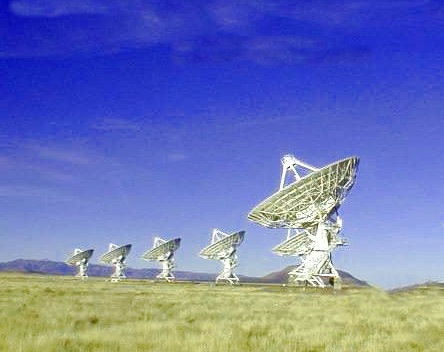MAYBE WE'RE ALONE IN THE UNIVERSE AFTER ALL
/Photo Credit: A. Passwaters/Rice University based on original courtesy of NASA/JPL-Caltech at http://www.nasa.gov/multimedia/imagegallery/image_feature_1454.html
The question of whether or not life exists elsewhere in the universe has been examined in countless ways, and much of the discussion depends on knowing how rare an occurrence life is. When it does arise, how likely is it to evolve into an intelligent species? We’re now nearly certain that there are at least hundreds of other planets in our galaxy (based on our best instrumentation and scientific rationale) and assume that the number is actually higher than that by orders of magnitude, but we still don’t know the odds of life arising in any given place, let alone intelligence. And sometimes rather oblique investigations make the issue even murkier.
Although we can imagine forms of life composed of different elements, Earth life is based on the element carbon. Without carbon-based molecules, there would be no life as we know it. So is carbon a common element on extraterrestrial planets? If so, we might have high hopes that carbon-based life would have arisen elsewhere. The problem is that many scientists who investigate planet formation feel that Earth shouldn’t have large amounts of free carbon that isn’t locked into the planet’s core. So some researchers from Rice University have theorized that Earth must have been hit by a Mercury-type planet something like four billion years ago and absorbed the doomed planet’s carbon into Earth’s upper mantle and crust, where it could eventually be used for the evolution of life forms. If that’s true, and if carbon-based life couldn’t arise any other way, then the rarity of that exact type of collision means that the number of planets hospitable for our kind of life would be equally rare.
Another couple of researchers at Cornell University have approached the question of life’s scarcity in a completely different way. They’ve calculated the rate at which genetic material (like DNA) increases in complexity through natural evolution, reasoning that if you work that rate backward you can figure out how long ago the most basic life forms came into being. According to their calculations, it took far longer than we’ve previously thought for life to arise and ultimately evolve into intelligent beings—nearly ten billion years, in fact. Ten billion years ago is before the existence of the solar system, so they propose that life arose elsewhere and travelled to Earth by meteorites. But if it really does take that long for intelligent life to develop, then we shouldn’t be expecting visits from advanced aliens anytime soon. They’ll all be at about the same stage of evolution as we are—we may even be among the first intelligent species to arise.
What would it mean to us if we do turn out to be alone in the galaxy? On the bright side, we won’t go out into space and face a slew of hostile races eager to kill us off, as in Starship Troopers by Heinlein, and the John Scalzi Old Man’s War series. But it would also mean that we’ll never find companionship beyond our own kind, never get fresh perspectives on art, music, love, or the meaning of life. We’d never get a chance to learn from others with very different experiences. Even worse, if the number of planets with carbon-based life turns out to be near zero, then it will also be nearly impossible for us to find new worlds that are hospitable to us and our fellow Earth species, which means we’ll have to terraform every planet we encounter before we can colonize it, a process that could take thousands of years.
Much as I hate the thought that venturing out into galactic space would bring humanity into conflict with other races, I really hope that life isn’t a rare thing in the cosmos, and that we’re not the only intelligent beings. A universe with no inviting planets or potential friends would be hostile indeed.




